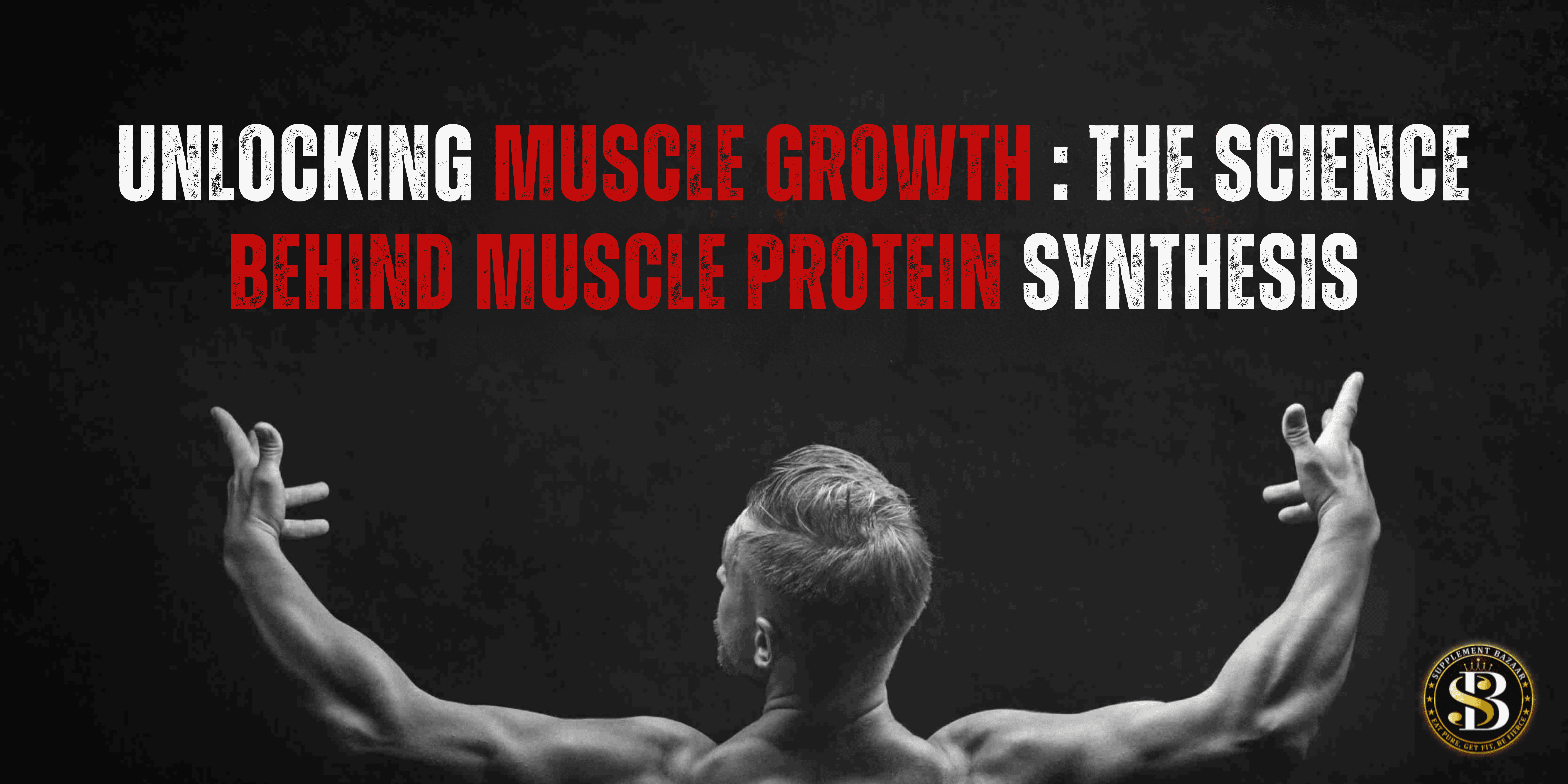Unlocking Muscle Growth: The Science Behind Muscle Protein Synthesis

In order to gain the muscle, the knowledge of muscle protein synthesis process is crucial. Whether you are an enthusiast of fitness, an athlete, or the one who is starting to make the body better, by making good use of MPS your goals will be attained quicker. In this article, we will uncover the topic of muscle protein synthesis, its mechanism, and practical tips for its improvement for muscle development in the body.
What is Muscle Protein Synthesis?
Muscle protein synthesis is the biological process which cells utilize in the building of new proteins to repair and grow muscle tissue by it. After the exercise, especially resistance training, there are microscopic damages inflicted on muscle fibers. MPS efficiently is about the body restoring such damage. Through time, muscles will become even larger due to this process. In fact, **muscle protein breakdown (MPB)**, which is the process of protein being broken down to use its energy or in other body functions, counterbalances this process. To build up muscles, the speed of MPS should be more than MPB. This is what makes nutrition, exercise, and recovery the cornerstones of muscle growth.
How Does Muscle Protein Synthesis Work?
The two major factors that activate MPS are:
- Resistance Training: By lifting weights or practicing resistance exercises the muscle fibers are subjected to tension that triggers the body to start the repair and growth process.
- Protein Intake: The body needs the amino acids which are the building blocks of the new muscle tissue like leucine best. When you train, you get the body to mind the pathways like mTOR pathway that control MPS. Appropriate nutrition together with exercise escalate this process which results in efficient muscle bulking.
Key Factors That Influence Muscle Protein Synthesis So as to optimize MPS, one should be concerned about these key critical factors:
- Protein Quality and Timing-
High-Quality Protein Sources: I would by all means advocate for whole proteins like eggs, chicken, fish, dairy, and vegetarian-based foods, like soy and quinoa.
Leucine Content: Amino acid leucine stimulates MPS. The suggested leucine intake per meal is 2-3 grams.
Timing: Eating protein in the right span of time (1-2 hours) will support the process of MPS. Furthermore, spacing out the consumption of protein so that it is taken evenly throughout the day (20-40 grams a meal) has the wanted effect. - Resistance Training- The choice of compound exercises such as squats, deadlifts, and bench presses, which work several muscle groups and thus offer a strong incentive for MPS, should be the main focus. The progressive overload (gradually increasing weight or intensity) to allow the muscles to adapt is the reason why you should never stop doing that.
- Caloric Surplus – There is a necessity for the body to have energy in the course of the muscle-building process. Do not consume fewer calories than you need so that the MPS and personal development are supported.
- Rest and Recovery- In the process of rest is the time for MPS. Sleep (7-9 hours each night) and giving the body time to recover between workouts, therefore, should be the priority.
- Hydration – Water is one of the most important parts of cells. The necessary cellular processes should stay at their optimum levels by having enough water. It is also important in building and recovery phases.
Common Myths:
- More Protein Equals More Muscle– It’s evident that protein is essential but a very high intake does not always boost MPS when the body can only handle the same quantity at a time.
- Only Animal Proteins Work– In comparison, the source of plant-based proteins that is consumed in the right amount and the mixing of different proteins to cover all the essential amino acids result in an efficient MPS.
- MPS Stops After a Certain Age– The idea that MPS might look like CLS when you get older is quite real although the fact remains that you can always stimulate muscle growth through working out and proper intake of the nutrients.
Practical Tips to Maximize Muscle Protein Synthesis:
- Prepare Your Meals: In your food, make certain you get enough protein.
- Post-Workout Meal: Add protein-carbohydrate combo to your diet to restore the glycogen levels after the exercise and keep the MPS in motion.
- Supplement Efficiently: Try taking a whey protein supplement or branched-chain amino acids (BCAAs) if you struggle to consume enough protein through regular food.
- Be Persistent: Sadly, increasing the muscle is a long procedure. Consistency is necessary to get the nourishment and the physical exercise aimed to get long-term outcomes.
Conclusion:
Muscle protein synthesis is the main process for muscle growth and repair. By delving into its functions and committing yourself to your fitness training, you can realize your fitness ambitions even more quickly. Keep in mind that being constant with training, diet, and maximizing recovery is the very essence of the release of your body into total potential. Both endurance athletes and people who are just starting out with their training stand to benefit from muscle-protein-synthesis because it can aid getting better in performance and having a leaner body. Why don’t you give it a try and observe how you will make better strides!
